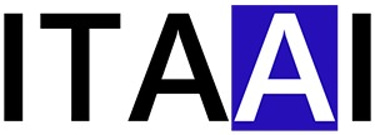Responsibilities of an accountant
Responsibilities of an accountant primarily are recording and reporting financial transactions. But that is not it. There are some other responsibilities that too come with this role.
Irfan Sharif, ACA, ACCA
1/16/20252 min read


Responsibilities of an Accountant - other than core Accounting
Accountants handle the complete financial process, from recording transactions to preparing financial statements. Beyond their core tasks, they also take on additional responsibilities, including:
1. Receivables Management
Overseeing the approval of customer credit terms.
Issuing and managing invoices for sales transactions.
Following up on overdue invoices to ensure timely collections.
Monitoring and maintaining accurate records of accounts receivable.
2. Payables Management
Ensuring suppliers are paid promptly to maintain good relationships and avoid penalties.
Verifying and maintaining complete documentation for all supplier payments.
Monitoring payment schedules and optimizing cash outflows.
3. Banking Management
Maintaining relationships with banks to ensure smooth financial operations.
Exploring and negotiating new banking options for better facilities or reduced costs.
Arranging and managing new banking facilities like loans or lines of credit.
4. Custodian of Petty Cash and Cash Equivalents
Managing petty cash, including receiving and disbursing cash.
Recording all petty cash transactions accurately.
Ensuring appropriate usage and reconciliation of cash balances.
5. Payroll Management
Ensuring timely and accurate payroll processing.
Managing employee records and statutory deductions like taxes and retirement contributions.
Addressing payroll-related queries from employees.
6. Inventory Oversight
Working with operations teams to manage and reconcile inventory records.
Ensuring accurate valuation of inventory in financial reports.
Conducting periodic stock counts and reporting discrepancies.
7. Financial Reporting and Analysis
Preparing management reports to provide insights into financial performance.
Analyzing trends and making recommendations to improve profitability or efficiency.
8. Tax Compliance and Reporting (with help with tax advisors)
Ensuring compliance with applicable tax laws and regulations.
Preparing and filing tax returns accurately and on time.
Responding to inquiries from tax authorities and assisting with audits.
9. Budgeting and Forecasting Support
Assisting in the preparation of budgets and financial forecasts.
Providing analysis and insights to support strategic decision-making.
By managing these responsibilities, accountants play a critical role in maintaining the financial health and operational efficiency of an organization.
By managing these side roles effectively, accountants not only fulfill their core duties but also contribute significantly to the operational and strategic success of an organization.
Small vs Large Organizations:
In small organizations, the accountant will be doing all these tasks. However, the medium to large organizations there is an accounting department where there are separate roles to handle these tasks.
So, in the medium to large organizations, you will find also see the jobs like:
Receivables Manager (also Assistant Manager/Associate/Clerk)
Payables Manager
Payroll Accountant
Treasury Manager (manages financial assets, cash, and also the banking relationships).
Manager Financial Planning and decision making
Manager Budgeting
All these roles come under the umbrella of Accounting and as an Accountant you should be open to apply for such roles.
ITAAI
Transforming accounting through advanced technology solutions.
contact@itaai.com
© 2025. All rights reserved.
